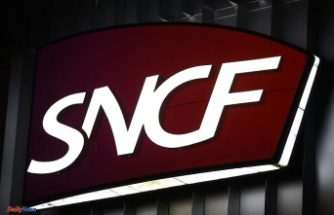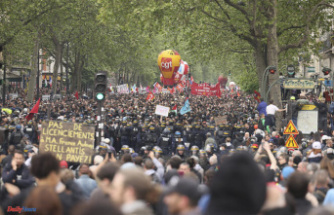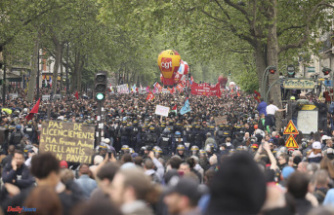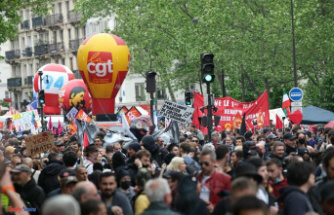The Chinese car group BYD is venturing into the European car market and will start sales in Germany this autumn. He initially has three models in his luggage - they are all electric. BYD has already discontinued the production of combustion models.
So far, there have only been tentative attempts by Chinese automakers to open the door in Europe. Some of them failed miserably - on the crash wall. But that's long history. Today, in the age of electric mobility, the cards have been reshuffled. China dares again to gain a foothold in the most difficult car market in the world. With Nio, Aiways and MG, the first models have already arrived, partly via pilot markets such as Norway or the Netherlands.
Now the world's largest manufacturer of electric cars has Europe on the list: BYD (Build Your Dreams). The brand, which began as a battery manufacturer in 1995, sold more NEV (New Energy Vehicle), as electric cars are called in China, than Tesla in the first half of the year: 640,000. If you add the past few years, BYD comes to over two million.
The Chinese are using the Paris Motor Show this week to present their European models to the public. However, it is not the first trade fair appearance on European soil. 14 years ago, BYD showed the F3DM plug-in hybrid model. But now it's all electric, and BYD stopped producing combustion models this year.
Like other large car manufacturers, the Chinese also rely on a dedicated electrical architecture for their Stromer. It is scalable and modular, fits from small cars to large SUVs. BYD simply calls it 3.0. Ranges of up to 1000 kilometers and "refueling" of 150 kilometers in just five minutes are promised. The 3.0 platform made its debut in the Ocean X concept car, a sporty mid-size sedan.
The first production vehicle based on 3.0 is the compact hatchback model Atto 3, a competitor to the VW ID.3. However, there are lithium iron phosphate cells (LFP) in the floor instead of the usual lithium nickel manganese cobalt version (NMC). Although LFP are said to be more cycle-resistant and fireproof, they can absorb power less quickly. The 60.5 kWh battery can only handle a maximum of 88 kW DC charging power - far too little in the segment. The WLTP range should be 420 kilometers.
Number two in the Chinese luggage is the Han, a business-class sedan similar to the Tesla Model S. The five-meter-long Han has two electric motors with a combined output of 380 kW/517 hp, which have blade-design LFP batteries a capacity of 85.4 kWh. The Han is supposed to cover a distance of up to 521 kilometers.
BYD is already on the Norwegian market with the Tang, and very successfully. The all-wheel drive model, almost as big as an Audi e-tron, was the best-selling electric SUV there in July. The Tang also has two motors with a combined output of 380 kW. BYD specifies the range as 400 kilometers. The DC charging power is again poor: 110 kW, which will only cause long-distance drivers to shake their heads.
Anyone who believes that China's car manufacturers are offering their Stromer at dumping prices despite the lack of charging will be disappointed. The Atto 3 starts at 42,250 euros. The Han sedan is available from 70,800 euros, the Tang SUV costs at least 71,400 euros
The three starting models Atto3, Han and Tang are to be followed in the coming year by the Dolphin. The small hatchback model is primarily intended for city use. BYD will probably position the seal below the Han in 2024. It's the size of a Tesla Model 3.
BYD has set up its European headquarters in the Netherlands. Even the distribution is almost in dry cloths. For Germany, BYD wants to work with the Swedish Hedin Mobility Group. Selected dealers, so-called "top-of-the-line dealerships", as can be read on the website, are to handle the sale. However, BYD is still hiding which dealers these are. On the other hand, it is announced that electric cars will be sold in 400 cities, 70 countries and six continents worldwide. Motto: "Cool the Earth by 1°C".












